
Grant winners
Law and Science Dissertation Grant
Grant winners

Allison Cross
Restorative, Peer, and Procedural Justice: Examining Teen Court in Maricopa County, Arizona

Patricia Ferreira
A One-Time Offer: Do Perceptions of Coercion Moderate the Effect of Scarcity in the Miranda Context?

Hannah Friedrich
The Legal Geography of Insurance Litigation and Post-hurricane Recovery in Southwest Louisiana

Morrgan Thomas Herlihy
Information or Politics? How Venue Influences Exchanges between Nominees and Senators during the Confirmation of Federal Judges

Muhammad Abdur Raqib
Judicializing Security: Mass Criminalization and Lawfare in Bangladesh

Kris Rosentel
Locating the New Lavender Scare: The Spatial Structure of LGBTQ Disparities in Arrest

Jessica Slattery
Redefining Sovereignty and Investor Rights in Honduran Semi-Autonomous Zones

Will Von Geldern
No Right to Counsel: Barriers to the Provision of Legal Representation for Evicted Households
'We are Farmers of the Sea': Making and remaking clams, fishers, and property in the Po River delta

Mariachiara Ficarelli, Department of Anthropology, Harvard University
In 2017, Manila clam producers in the northern Adriatic lagoons of the Po River Delta shifted from being recognized and governed as fishers (‘capture-based’) to agriculturalists (‘cultivation-based’) within Italy and the European Union. This dissertation project examines what transpires in the wake of this legal transition: namely, the unfolding attempts to de-collectivize some 1,000 hectares of public-domain tidal lagoons. These attempts represent a transition of a different kind, from collectivized to privatized ownership. How exactly has the first transition from a population of fishers to farmers precipitated calls for de-collectivization? What happens when a certain conception of landed property is instituted and extended in and over water? What common ground, if any, will remain among farmers amid lagoon privatization? What role do clams — as a constitutive part of farmers’ lives and livelihoods — play as both animal and commodity in this process? Through an ethnographic study of these questions, the PI will investigate how forms of social organization are being made and remade to sustain an intensive form of animal production. This project’s methodology is based on 18 months of field-based and archival research carried out within the labor, planning, and regulatory processes of a major clam farming cooperative. Interviews and participant observation will be carried out with farmers as well as with veterinarians, marine biologists, food sanitary authorities, and land and water surveyors working in the industry. In doing so, the project contributes to literature in anthropology and agrarian studies on monocultural farming, resource-extractive industries, and changing property regimes.
A new normal: Testing cumulative prospect theory in defendant plea decisions

Grace Hanzelin, Department of Psychology – Legal, University of Texas at El Paso
Given that over 95% of criminal cases in the United States result in guilty pleas, and around 25% of wrongful convictions stem from such pleas, plea-bargain decision-making has gained significant attention from psycholegal researchers over the past 15 years. However, while existing models of defendant plea decision-making can help explain such decisions in the aggregate, there is not currently an accepted model that can accurately predict individual plea decisions.
Cumulative Prospect Theory (CPT) has been proposed as a potential solution due to its ability to assess individual factors like loss aversion and diminishing sensitivity to gains in subjective risk evaluations. Applied to plea decisions, CPT could help explain why two defendants facing similar deals make different choices. This project will test CPT’s application to plea decisions through two studies: first, with a traditional gambling-style framework, and second, through a vignette-based plea-bargaining scenario incorporating CPT-specific concepts. Both experiments in this project will recruit a community sample online, and the second experiment will utilize a second community sample of people with prior justice involvement.
By testing CPT within this framework, this project aims to enhance understanding of defendant behavior in legal contexts, especially by accounting for individual variability that other models fail to address. These experiments are expected to extend the field of psychological research on decision-making and may bridge gaps between theoretical models and real-world plea decisions. The findings will have potential applications in both laboratory settings and actual plea bargaining, helping researchers and legal professionals better predict and understand plea decision processes. The project could ultimately contribute to a normative model of plea decision-making with real-world relevance.
The roles of race, gender, and sexuality in constructing women sex offenders
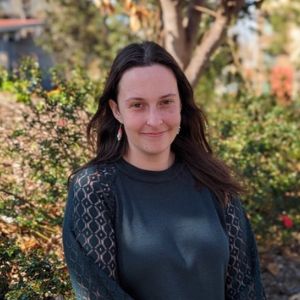
Amelia Roskin-Frazee, Department of Sociology, University of California, Irvine
Sexual assault occurs every 68 seconds in the United States and over 900,000 people are currently on U.S. sex offender registries (websites that track those previously convicted of sex crimes). However, despite the frequency of sex crimes and a wealth of research documenting criminal legal system bias against defendants of color generally, limited research exists on how state actor biases may affect sex crimes case processing.
This project examines how state actors operationalize carceral imaginaries in U.S. sex crime case processes. First, through in-depth interviews with prosecutors, law enforcement officers, and other state actors in California, this project will interrogate how state actors make decisions in sex crimes cases based on their conceptions of what constitutes a sex offender. Second, through comparing existing survey data and new data collected from U.S. state departments of corrections on prison entry, this project will analyze how the race and sex of accused sex offenders shifts during stages of the criminal legal process.
Ultimately, this project will shed light on sex crime case decision-making and potential state actor biases that have previously gone unnoticed due to sex crimes appearing “whiter” than other types of crimes (in terms of the demographics of those incarcerated). Additionally, through providing a more in-depth understanding of the characteristics of those ultimately incarcerated for sex crimes, this project will allow for the creation of culturally-informed interventions for those who cause sexual harm.
An honor to have served: A genealogy of jails, juries, and carceral imaginary (1850-2021)

Alexis Rowland, Department of Criminology, Law and Society, University of California, Irvine
The standard narratives about the origins of the modern penal landscape hold that forms of punishment are an outgrowth of social understandings of crime and punishment; however, this relationship is undertheorized and understudied. Moreover, sociohistorical accounts of penal change and the theories derived from them largely omit county jails despite their position as the central organizing institution of the carceral system. This study explores the ways in which county-level ideological contexts—using racial group threat and cultural affinity theory—produce different understandings of punishment and regimes of jailing. More than a history of California jails, this dissertation is a historical analysis of how Californians have understood incarceration.
The project involves collecting and digitizing thousands of reports from grand jury inspections of county jails in California from 1850 to the present. These important documents have been scattered across remote parts of the state, in local archives, courthouse basements, and in one case, a retired airplane hangar, but will now be publicly available as a digital database. In reading these documents sequentially, they reflect the carceral imaginary, an evolving image of punishment, its social function and how it should be implemented. The analysis uses Natural Language Processing (NLP), machine learning, and traditional archival methods to parse the corpus and discover patterns of ideological and penal change over time and place. In centering jails and ideology, this study expands on dominant histories and theories of punishment, and in doing so, is a step forward in producing the types of penal knowledge necessary for addressing the pressing issues of the modern penal landscape.
Measuring misconceptions, myths, and stereotypes about hate crimes: Testing a hate crime myth acceptance scale

Matthew Vanden Bosch, Department of Criminology and Criminal Justice, Florida State University
Stereotypes have significant impacts on how people and organizations perceive and respond to important events. Criminologists have long found substantial impacts of beliefs in stereotypes on responses by and towards victims of sexual violence, and these beliefs are generally measured through rape myth acceptance scales. Recent work has begun to investigate the importance of broad stereotypes of hate crimes in how victims, police, and prosecutors respond to hate crimes when they occur. This project focuses on acceptance of hate crime myths, which represent prejudicial, stereotypical, or false beliefs about hate crimes, hate crime victims, and hate crime offenders. In doing so, this project will create and test a novel hate crime myth acceptance scale, expanding research on hate crime stereotypes with a logical, but so far unfulfilled, advancement.
The project contributes to research on the importance of stereotypes and hate crimes by surveying 1,000 people in the United States. This research will help to understand general beliefs in hate crime myths and identify predictors of hate crime myth acceptance. As in the study of rape myths, the authors expect that these prejudicial and false beliefs will be associated with a number of negative consequences, such as a lack of support for victims, misclassification of the crime, and suboptimal responses from the criminal justice system. A validated way to measure beliefs in hate crime myths can help to better inform future research, as well as educate important agents in the criminal justice system, such as police officers, prosecutors, and judges.
The Role of Communication in Plea Bargaining and Plea Decision-Making

Mary Catlin, Department of Criminology, Law and Society, George Mason University
In the U.S., most criminal convictions are resolved via guilty plea, and almost all defendants plead with the assistance of defense attorneys. Despite these two facts, we know little about the role defense attorneys play in defendants’ decisions to plead guilty.
This project will test two factors that can influence how plea information is communicated to defendants. First, when the defense attorney hears the plea offer from the prosecutor and then communicates that offer to the defendant, information could be lost or distorted (e.g., the “telephone” phenomenon). Second, defense attorneys have conflicting professional motivations, as they often work with the same prosecutors repeatedly. This situation could potentially lead them to see the prosecutors as coworkers, yet they have ethical obligations to the defendants they represent. Regardless if information is lost because of the “telephone” phenomenon or because of defense attorneys’ motivations, the information available to a defendant is likely to impact plea decisions. To test these factors, the first study will look at attorneys’ motivation by asking defense attorneys across the U.S. to participate in an online experimental survey. Study 2 will look at how both factors influence the plea bargaining process using an online mock plea negotiation paradigm with community members.
This project is theoretically significant because it is a novel attempt to understand (1) the underlying mechanisms driving defense attorneys’ communication with defendants; and (2) the impact the communication of a plea offer has on plea decision-making. Findings from this research will also help shed light on the role defense attorneys play in defendants’ ability to make knowing and intelligent guilty plea decisions.
The Negotiation of Algorithmic Risk Assessment Scores in U.S. Pretrial Hearings
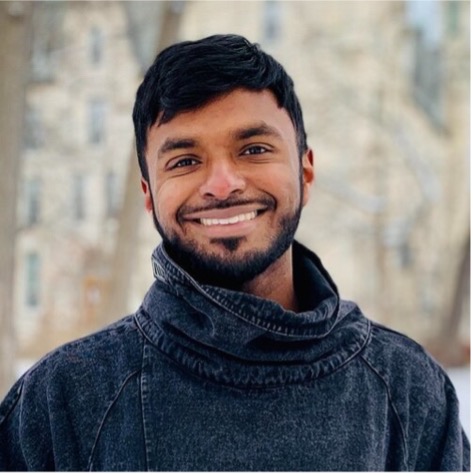
Sino Esthappan, Department of Sociology, Northwestern University
Algorithmic scoring systems are predictive analytic tools that use digitized records to quantify the likelihood of future events. Because these systems are widely considered objective and legitimate, they now increasingly influence a variety of institutional decision-making domains like education, healthcare, and criminal justice. Sociologists find that algorithmic scoring systems discipline and direct individual decision-makers, but less is known about how networks of actors use them to coordinate decision-making processes. This dissertation uses the case of pretrial risk assessment technologies to investigate how policy actors across different organizational fields institutionalize diverse data-driven practices in local settings.
This project follows two groups of pretrial policy actors: (1) local courtroom officials including judges, pretrial officers, public defenders, and prosecutors in five criminal courts; and (2) national policy stakeholders like legislators, policy advocates, researchers, technical assistance providers, and technology developers across the US. It uses interviews, observations, courtroom transcripts, and other official documents to uncover how these actors variously leverage risk assessment technologies to institutionalize new, data-driven punishment practices in US pretrial hearings.
This multi-site, multi-method study is ripe to instruct timely and important academic and policy discussions surrounding the promises and limits of algorithmic technologies that aim to create a fairer world. The results will illuminate how organizational culture shapes the institutionalization of algorithmic scoring systems. They will also offer instructive insights on how policymakers can better manage the algorithmic turn in criminal courts and in other legal and organizational settings.
“It Does Not Matter What People Click”: The Sociotechnical Construction(s) of User Consent in Data Privacy Laws
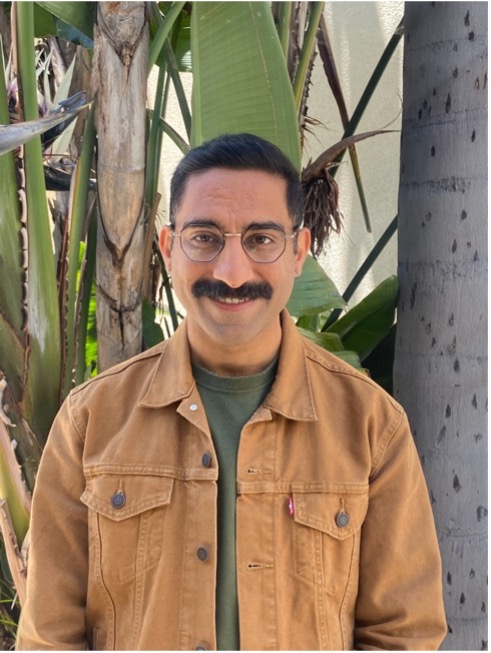
Rohan Grover, Department of Communication, University of Southern California
Since 2016, new data privacy laws and regulations have been enacted in dozens of jurisdictions around the world, including the European Union, China, Brazil, India, South Africa, and several US states. These laws follow a common paradigm by imposing requirements and restrictions on companies that collect users’ personal data. In response, a novel industry has emerged—the privacy tech industry—to supply companies with technical solutions, standards, frameworks, and expertise to comply with data privacy laws. This industry plays an outsized role in shaping policy implementation—or what data privacy laws mean on the ground.
This project employs ethnographic methods to explore the privacy tech industry. It draws on multi-site fieldwork across industry conferences, research and policy fora, and marketing media, as well as interviews with practitioners and focus groups with users, to clarify the nature and structure of the privacy tech industry. Specifically, it “follows” user consent as an analytic and discursive object that reveals sociotechnical relations as well as the political and ethical stakes of data privacy law in action.
By shifting focus from the binary question of whether companies are compliant to instead examining how a novel industry mediates the law, this project seeks to demonstrate how the most visible outcomes of data privacy law—such as cookie consent pop-ups—are not inevitable. This analysis can promote transparency and accountability that may inform regulatory approaches and enforcement, which is particularly important as the privacy tech industry expands its jurisdiction to claim expertise in the emerging topic of AI governance. More broadly, then, this project contributes to understanding the politics of technology policy in general.
"Performances in Prison": Identity Transformation through Role-taking
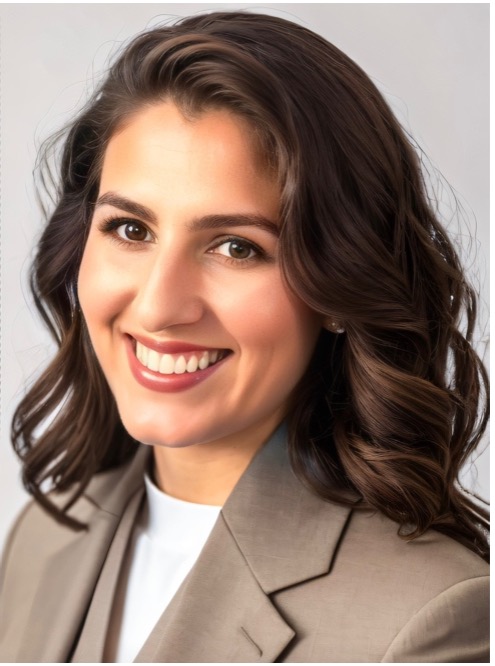
Victoria Inzana, Department of Criminology and Criminal Justice, University of Missouri—Saint Louis
Individuals often put forth a presentation of self, a performance for how they want to be seen. Few scholars have teased apart how context might matter for the performances people are able to display and the identity work in which they engage. This work pays explicit attention to the carceral context, whereby tension between the different correctional goals of rehabilitation and punishment may shape role access, presentations of self, and identity work. This study utilizes ethnographic observations with currently incarcerated persons to investigate how role-taking in a prison theatre program influences their identity change. The project will examine a setting in which currently incarcerated people are taking on different roles, both literally as characters in a play and figuratively as they embody the social role of artist. Despite a robust literature, little is known about how such different contexts shape the performances and identity work in which people engage. This project has theoretical implications for understanding potential mechanism(s) of how individuals might desist from crime by incorporating social roles and identity work into their understandings of stigmatized identities. The policy implications of this study include potential changes for how the criminal justice system deploys in-prison programming to rehabilitate individuals and encourage the desistance process.
Processing and Sanctioning Rule Violators in Prison
 Katie Rankin, School of Criminal Justice, University of Cincinnati
Katie Rankin, School of Criminal Justice, University of Cincinnati
Crimes and other rule violations in prisons are common, yet very little is known about how those cases are processed and disposed of by prison officials and whether these procedures result in equitable dispositions and outcomes for incarcerated persons (IPs). The purpose of this dissertation is to address this gap directly and, by extension, advance correctional theory and practice, by conducting a systematic evaluation of disciplinary processes, including the sentencing-like processes of prison disciplinary hearings and decision-making of prison actors. The analytic strategy includes 1) a nationwide review of disciplinary policies, 2) direct observations of rule infraction hearings in Ohio, 3) in-depth interviews with Ohio staff involved in handling and processing suspected rule violators, and 4) analyses of administrative data on the dispositions and sanctions for IPs cited for rule violations in Ohio prisons.
Specifically, this dissertation will answer three main questions. First, what are the goal(s) of hearings, and what strategies are in place to achieve those goals? Second, how consistently does the work conducted by hearing officers and boards align with this framework and, when misaligned, what are the causes? Third, how do prison staff understand and enact their roles in the disciplinary process, and what factors help inform decision-making? By answering these questions, we can gain important policy-relevant insights into the prison disciplinary process to better understand how prison staff involved in the processing of suspected rule violators work together, the factors that inform their decision-making, and the impact of these decisions on IPs.
Essays on Access to Legal Institutions
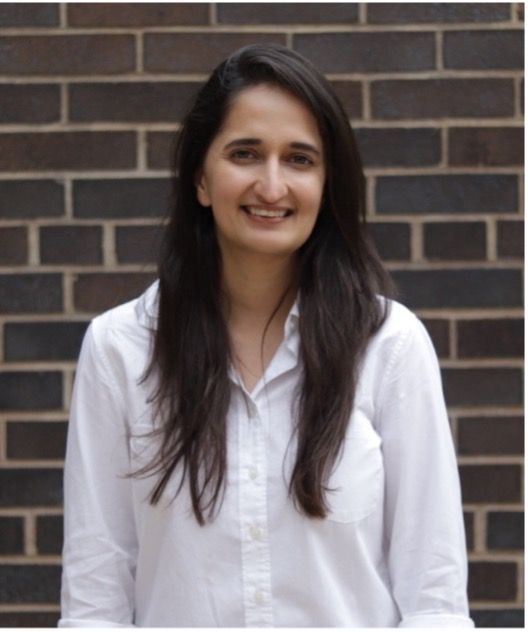 Saloni Bhogale, Department of Political Science, University of Wisconsin-Madison
Saloni Bhogale, Department of Political Science, University of Wisconsin-Madison
Access to justice is crucial for maintaining a fair society that upholds the rule of law. Individuals who cannot seek remedies for their grievances and disputes through the judiciary may be deprived of their fundamental rights, which are essential for promoting equality and human development. However, courts are often located far away from places where disputes actually take place - making the time and monetary cost of going to court prohibitive for persons residing in poor communities.
Thus, those engaged in disputes may seek counsel and mediation outside courts - through local, trusted community leaders. This project highlights the role of one possible mediator for rural communities in India - members of the elected village council. Through this work, we can understand whether local politicians play a role in resolving conflicts and disputes, and to what extent this informal service provision can meaningfully facilitate access to, and eventually influence the workloads of, formal legal institutions.
This work is important to understanding the dynamics of dispute resolution in rural areas across the Global South and the developing world, wherein communities may be forced to choose between the costly enforcement of the formal law through courts, and the inexpensive and possibly subjective adjudication by village-level intermediaries.
Co-Management of Natural Resources: Expert Perceptions from Hawaii and Aotearoa New Zealand

Samantha Carter, Department of Natural Resources, University of Missouri
Historically, government dismissal of or inattention to the concerns of Indigenous people about their environment has created an unequitable relationship, where Indigenous social, political, economic, and cultural ties to nature are damaged. Such has been the case for Indigenous people living in two post-colonial governments: the Māori of the nation of Aotearoa New Zealand and the Kānaka Maoli of the (U.S.) Hawaiian Islands. The commonalities of the resource bases and population demographics of the two areas, as well as the commitment the countries’ governments have demonstrated to incorporating Indigenous participation, make them well situated for cautious comparison.
Two emergent forms of collaborative governance adopted in both localities, co-management and co-governance, provide the potential to tailor rules to local conditions, increase regulatory compliance, improve collaboration, and lead to greater Indigenous stakeholder engagement and empowerment. However, the effectiveness of these collaborative governance approaches is often impacted by institutional and social barriers. Through expert interviews with policymakers and attorneys representing Indigenous interests, the project seeks to identify institutional and social barriers influencing the adoption and implementation of collaborative governance in each location. This project will expose how collaborative governance policies have succeeded and failed in approaching biculturalism through recognition and inclusion of Indigenous populations. Perspectives from each location will reveal the ways that a policy of collaborative governance can include Indigenous stakeholders and protect cultural values.
Recognizing, Naming, Blaming, and Redress of Intimate Partner Violence in Rural Michoacan

Veronica Gonzalez, Department of Social Ecology, University of California – Irvine
Despite progress towards gender equality, global rates of violence against women persist as a pressing issue. The organization UN Women estimates that one in three women worldwide experiences intimate partner violence (IPV). In Mexico, a staggering 70% of women and girls report encountering some form of violence, with over ten femicides occurring daily in 2022. This research delves into the perceptions of IPV within rural communities in Michoacán, examining how community members define and conceptualize it, as well as their perspectives on available avenues for redress. Additionally, it investigates the influence of Mexican governmental bodies (such as INMUJERES and SEIMUJER) and international organizations (like UN Women Mexico) in disseminating information regarding IPV and promoting understanding of both IPV and appropriate redress methods in these rural settings.
To accomplish these aims, data will be collected through interviews with community members, organizational personnel, and volunteers, along with observations at workshops facilitated by these organizations and document analysis. By gaining deeper insights into how IPV is comprehended and what constitutes suitable redress in these communities, more effective intervention strategies and resources can be crafted and customized for rural populations in Mexico and beyond.
Preliminary findings reveal that organizations acknowledge their limited reach in rural areas and are actively striving to enhance outreach efforts through diverse means. However, there are discernible barriers hindering rural community members from accessing and utilizing available redress options. These barriers encompass a lack of awareness about resources, limited access to them, distrust in their efficacy, and a perception that they are not appropriate.
Circuits of Citizenship: Transnational Digital Nomads in Mexico

Emily Jorgenson, Department of Anthropology, University of California – Irvine
One major effect of COVID-19 was the normalization of “remote” work. This project examines transnational “digital nomads” working remotely in Mexico City. Transnational digital nomads are professionals who live and conduct digital work outside their home country without permanent “expatriate” employment—typically working as contractors and entrepreneurs in fields such as digital marketing, user interface/user experience (UI/UX) design, software and website development, investment trading, writing, online teaching, and consulting. Digital nomads predominantly (though not always) come from nations of the Global North and often move to popular destinations of the Global South—such as Mexico City—as a form of geoarbitrage. During COVID-19 lockdowns, Mexico’s policies remained relatively friendly to foreigners, with no entry testing or quarantines. This relative open-door policy made palpable the incongruity of transnational migration structures and rapidly changing labor conditions for professional workers. How are transnational digital nomads shaped by the migration process when they often obtain economic stability but lose guarantees of full-time employment, health insurance, and legal residency?
Using qualitative data—including in-person and digital participant observation, interviews, and digital archiving—this project will examine the daily practices of digital nomads in Mexico City, in the wake of global lockdowns, in order to understand how digital nomads—as digital laborers—are reconfiguring transnational citizenship. By documenting how the everyday practices of placemaking are shaped by large-scale technological changes, this research contributes to public conversations on citizenship, class, labor, tourism, and globalization.
Cannabis Legalization in California: A Critical View on Socio-Legal Change

Ekaterina Moiseeva, Department of Law and Society, University of California – Irvine
An increasing number of socio-legal scholars regard cannabis legalization as an intriguing legal puzzle, emphasizing the discrepancies between federal and state regulation. However, these analyses often overlook the social dynamics of the legalization process. This research, instead, delves into the nature of cannabis legalization as a process of social change by focusing on local actors and practices. It aims to unravel how the “legality” of cannabis is being constructed and maintained through the everyday activities of various actors. Rather than questioning whether cannabis is legal in California, this study investigates where, how, for whom, and to what extent it is legal.
For decades, cannabis activists have been fighting against racial injustice, discrimination, and inequality, hoping that full legalization would provide opportunities to repair the damages caused by the war on drugs. But recent developments in California’s cannabis industry suggest that economic interests are taking precedence over the commitment to social equity and reparations. There are mounting concerns that new cannabis laws may in practice contribute to the expansion of the traditional capitalist paradigm, thereby favoring corporate interests and limiting economic opportunities for minority groups. This research employs a robust qualitative methodology to investigate whether the economic aspects of legalization are overshadowing the pursuit of social justice.
The primary data are interviews with active cannabis businesses, specifically their experiences with licensing, taxation, competition, interactions with authorities, access to resources, and stigma. Supplementary interviews with underground market participants, cannabis attorneys, city officials, social activists, and representatives of licensing agencies provide a broad context for comprehending the intricacies of the legalization process.
Considering the Continuum: Sexual Violence, Humanitarian Hierarchies, and Intersecting Inequalities in Post-Conflict Iraq

Mairéad Smith, Department of Anthropology, Brown University
Humanitarian responses to sexual and gender-based violence (SGBV) in conflict constitute a shift from humanitarianism’s moral principle of alleviating all suffering to a focus on suffering arising from a specific form of violence, namely rape in conflict. In attending to the so-called Islamic State of Iraq and Syria’s (ISIS) use of SGBV as a crime against humanity, this participatory action research project examines the consequences of such a designation for humanitarian programming in Iraq.
By conducting participant observation in Sinjar and the Kurdistan Region of Iraq among humanitarian organizations carrying out SGBV programming, collaborating with survivor-advocacy groups, and through interviews with women who do not engage with humanitarian organizations, the project explores what kinds of violence and which victims and perpetrators get excluded, uplifted, or suppressed so that sexual violence in conflict might be recognized as a crime against humanity.
In situating the relationship between violence in war and peacetime along a continuum in “post”-conflict Iraq, this project seeks to provide a practical intervention in collaboration with research participants that investigates if humanitarian interpretations of gender violence establish hierarchies of victimhood and harm. Such hierarchies could then have material ramifications in post-conflict contexts. Rather than provide a linear account of the sexual violence women experience, this project traces the interaction among humanitarian actors, women who have survived ISIS sexual violence, and those whose experiences escape the attention of humanitarian organizations. The aim of this approach is to collectively develop an effective humanitarian intervention to SGBV.
Productive Encounters: Bureaucracy, Dispossession, and Discourse of Unhoused LA

Maggie Woodruff, Department of Anthropology, University of California – Irvine
Homelessness is an ongoing emergency in Los Angeles. Contemporary legal and political advocacy and regulatory oversight rely on a variety of methods and technologies that require meeting the unhoused where they live and documenting these meetings. For example, sanitation sweeps of homeless encampments involve government workers, law enforcement, service providers, and watchful citizens that produce data about the encounter. Formal or informal, it is through encounters with both the persons and places that constitute homeless encampments that certain kinds of knowledge relevant to their health, welfare, rights, and regulation are produced.
This comparative, multi-site project uses methods such as participant observation, surveys, interviews, and textual analysis to investigate interpretive practices of encounters with unhoused Los Angelenos. Respondents will include unhoused and housed neighbors, service providers, government employees, advocates, and others. Key questions to be addressed include: How does the data collected during field encounters become part of a record that supports varied responses to homelessness from differently situated institutions and actors? How are narratives about field encounters informed by the legal logics governing the place of the encounter? How do narratives about encounters with unhoused people shape perceptions of public space and possibilities of identity formation and belonging?
At root this research is invested in understanding how space can be shared. Encounters with unhoused people are inextricably linked to the politics and governance of public places—the space we all share. Understanding how different professionals approach interactions with unhoused people, and sharing this research with impacted communities and professionals, can lead to improved encounters and the more equitable sharing of public space.
A Comparative Measure of Judicial Legitimacy

Rahul Hemrajani, Dept. of Political Science, University of South Carolina
In the Federalist papers, Hamilton emphasized the vulnerability of courts as the weakest branch of government, lacking both the power of the "purse" and the "sword." Consequently, courts can secure compliance with their decisions only if people believe in the legitimacy of their actions. Courts that are seen as legitimate by the public can better prevent governmental overreach, enhance the rule of law, and protect democratic rights. However, there is no consensus on how to validly measure the legitimacy of courts. Additionally, existing research on legitimacy focuses on courts in the United States; we know little about judicial legitimacy in other countries.
The first part of the project aims to construct the Judicial Legitimacy Index (JLI), the first cross-national, time-series measure of public perceptions of judicial legitimacy for 150 countries from 1990 to 2020. The index is based on combining five indicators of judicial legitimacy—trust, compliance, participation, dissent, and commitment—collected from multiple sources, including cross-national surveys and government statistics. The second part of the project validates the JLI through original surveys in two countries. The final part uses the JLI to study one of the most important questions in comparative politics—can courts be bulwarks of democracy and constrain authoritarian governments?
The JLI developed through this project will provide insights into how people view their national court systems and allow researchers to test whether theories of judicial politics, primarily developed for the US, can be applied to countries around the world.
Invisible and Hypervisible: The Impact of the Carceral State on Black Women's Disaster Experience

Felicia Henry, Dept. of Sociology, University of Delaware
During disasters, emergency planning often ignores or overlooks populations involved in the criminal legal system. Individuals under community supervision in particular face compounded vulnerability, as the conditions of their supervision interfere with their ability to respond to a disaster, as they are simultaneously responsible for their welfare and under the control of the state. Black women under community supervision are especially vulnerable. Black women’s criminal legal involvement is intricately connected to narratives of Black womanhood in the United States, and their supposed deviance from standards across racialized, gendered, classed, and sexualized lines. Disasters both uncover and exacerbate these preexisting strains.
Using qualitative interviews, this project explores the phenomenological experience of Black women under community supervision during disasters with the goal of uncovering how Black women’s responses to disasters illuminate pre-existing strains of community supervision. This study will advance our knowledge of the broader influence and deeply embedded nature of the carceral state in the U.S.; lend insight into ideologies of punishment that promote and exacerbate vulnerability and their impact during disasters; and broaden the concept of social vulnerability to include vulnerability induced by the carceral state. Additionally, the project will help illuminate the impact of community supervision policy and practice on the outcomes of individuals, families, and communities, and yield policy recommendations for criminal legal system actors to better respond to disasters.
Diversity, Dominance, & Discrimination: Implicit Dominance in Venture Capital Contracts

Kyneshawau Hurd, Dept. of Jurisprudence and Social Policy, University of California, Berkeley
Despite the enormous impact of the Venture Capital (“VC”) industry—it has helped anoint the world’s four most valuable companies—there is effectively no legal backstop that ensures non-dominant groups (e.g., women and Black people) have an equal opportunity to share in its wealth creation and innovation. Furthermore, while many VCs have pledged efforts to increase investment in founders from non-dominant backgrounds, racial disparities persist. Nominal diversity efforts in VC investing may be obscuring how seemingly routine practices such as the use of control terms (contractual terms that limit the control of founders) in contracting contribute to these disparities. The central research questions in this project ask: whether investment in founders from non-dominant groups, though pro-diversity, comes with a level of control that White founders do not regularly experience? And how might social dominance motivations explain such disparity in their application? To answer these questions, this project develops and validates a novel implicit measure of social dominance orientation to be administered to diverse samples--college students, American adults, and VC employees--as they make contracting decisions. It also analyzes race differences in the frequency and severity of control terms of a 700+ sample of series A contracts (the first significant round of venture capital financing) involving VC firms that range in their diversity commitments.
Beyond scholarly contributions in the form of novel implicit instruments and frameworks that address gaps in the areas of social psychology and entrepreneurship, this project has implications for policy discussions at the Securities and Exchange Commission (SEC) and other agencies and organizations that are actively discussing how regulatory bodies can address race disparity in innovation and investment.
Privacy Apathy: How Culture and Affect Shape Legal Consciousness Pertaining to Data Privacy

Vasundhara Kaul, Dept. of Sociology, Purdue University
Concerns about online privacy have been rising steadily as encroachments by governments and business actors on people’s online data become increasingly ubiquitous. However, people often fail to act on their desires to protect their privacy because they consider preventive methods to be futile. The disconnect between privacy desires and actions is referred to as the privacy paradox. This dissertation project broadens the understanding of people’s privacy decision-making by identifying factors that engender these psychological states of privacy cynicism and fatigue, and thus create the privacy paradox.
Using data from survey experiments in the U.S. and Germany, the project examines how a country’s dominant cultural beliefs about technological developments and their regulation shape the extent to which people evoke the law to make sense of and act (or not) to protect their privacy, i.e., their legal consciousness about data privacy. The project aims to demonstrate how cultural beliefs shape the extent to which people feel apathetic about online data protection, and the impact these feelings have on people’s legal consciousness about data privacy - referred to as privacy apathy.
The project findings have potential to help identify the cultural and emotional barriers that trap people in a state of futility, preventing them from demanding better privacy protections. Also, by identifying the cultural beliefs that cause people to rationalize privacy encroachments, the findings can be used to develop interventions that encourage people to think of their personal data as less of a commodity and more as a legally defensible right.
Helpful intentions: Impact of intentionality on children's encoding and recall of forensically-relevant information

Ella Merriwether, Dept. of Psychology, John Jay College of Criminal Justice & the Graduate Center, CUNY
Event boundaries (EBs) mark the beginning and end of an event, helping us interpret our current experiences and recall information about them later. Within the context of child eyewitness memory, how a child forms their EBs and an adult questioner’s assumptions about where those boundaries lie could determine whether accurate forensically-relevant information is disclosed. Unfortunately, we know less about EB formation in children than in adults, and what we know suggests they struggle to create boundaries without salient cues (e.g., intentionality). Thus, understanding limitations in children’s EB formation and how children's boundaries differ from adults’ could provide insight into children's eyewitness memory and highlight the sources of specific miscommunications during interviews.
A one-session study will be conducted examining how intentionality affects preschool-aged children’s (3-to-6-year-olds; n = 200) encoding of forensically-relevant information (i.e., numerosity and clothing placement) during a staged laboratory event (i.e., a treasure hunt) and subsequent retrieval of such information during a post-event interview. Intentionality will be manipulated at exposure through labels and goal-directed justifications for the various tasks. During the interview, the intentionality condition will include the same labels as at exposure. Outerwear clothing placement will be manipulated within-subjects during the event. We will analyze the children’s interviews for level of detail, accuracy, and signs of EBs.
These results will update the understanding of children’s ability to answer forensically-relevant questions regarding numerosity and clothing placement. Researchers can then work with legal scholars to determine best practice approaches and create future studies that further our understanding of child forensic testimony.
Spatial Food Justice: Policy Mobilities of the 'Food Desert' Concept and the Socio-Legal Production of Inequitable Food Landscapes

Erica Zurawski, Dept. of Sociology, University of California, Santa Cruz
As food injustices are exacerbated by compounding global events – from the Covid-19 pandemic and inflation to war and severe weather events – efforts to address food inequities are more urgent than ever. Still, these efforts demand investigation, especially if they fall short of enacting meaningful change, or worse yet, reproduce the very inequities they set out to fix. Therefore, this project analyzes the range of solutions and projects the food desert concept is capable of inviting by utilizing a unique mixed methods approach, to provide an empirical account of the food desert metaphor’s relationship to urban transformation.
The project engages the following research activities: (1) documenting the metaphor’s legal and policy mobilities by tracing its origins and subsequent travel into federal legislation; (2) conducting a legal archeology of US legislation, congressional reports, and related documents on ‘food deserts’; (3) building a taxonomy of interventions undertaken in the name of improving food deserts; (4) conducting detailed case studies of food desert improvement projects in Denver, Colorado; and (5) interviewing key actors influential with the proliferation of the food desert concept, as well as local government officials, community and nonprofit leaders, food policy council members, and residents. By interrogating what projects are enacted in the name of remedying food deserts and documenting how they potentially foreclose or silence more radical and community-oriented projects, this project will help local government officials, food policy experts, community and non-profit leaders, and residents critically examine and reimagine the projects undertaken in the name of improving food deserts.
Health in Jail: Perspectives from People Living Inside

Sophie Allen, Dept. of Sociology, Stanford University
People sentenced for a crime have a right to “adequate healthcare” while imprisoned, and some scholars suggest that carceral settings can positively impact people’s health by providing resources like food, shelter, and medical treatment. However, the criminal legal system has a well-documented, deleterious impact on individual and population health. US jails are inherently coercive, and they are part of a criminal system used to maintain racial and social hierarchies. The perspective of people living inside jail is essential for understanding the complicated ways in which jails can both improve and degrade people’s health and wellbeing.
This project contributes in-depth interviews with people living inside a California jail during the coronavirus pandemic. Interview participants vary across gender, case status, preferred language, and other characteristics. Their perspectives about health, medical treatment, and coronavirus-related issues reveal the ways that jail can rescue, support, and protect, but can also neglect and inflict enduring harm on the people living inside. Through partnerships with jail doctors and community stakeholders, the project can inform practitioner policy, public advocacy, and societal reckoning with racialized mass criminalization.
Retaking Control? Sending States and the Regulation of Temporary Labor Migration

Kathryn Babineau, Dept. of Sociology, University of Virginia
The project traces the regulation of temporary labor migration programs in American agriculture. Recent decades have seen a substantial rise in global economic dependence on flows of documented migrants that come from temporary migrant worker programs (TMWPs). Such programs allow receiving country employers to exercise control over temporary workers, but also involve the ‘suppliers’ of migrant labor: the sending states from which migrants originate, which are forced to balance protections for nationals working abroad against the desire to make their migrant labor force more attractive to potential employers. Considering these developments, this multi-method project undertakes a migrant labor supply chain analysis to study the instrument controlling temporary labor migration law and enforcement in U.S. agriculture: The H-2A visa. It sheds light on the role that sending states play in perpetuating and/or breaking cycles of TMWP exploitation, including the creative strategies they deploy to provide legal protections and resources for their nationals abroad. Furthermore, it studies how sending states govern labor supply chains, including via interactions with non-state actors (e.g., businesses and worker-led coalitions) as well as receiving country governments. Indeed, these public-private collaborations might shift the balance of power between sending and receiving states.
Beyond its scholarly contributions, this dissertation has implications for visa policy discussions as several U.S. agencies and migrant sending countries actively discuss H-2A reform, and speaks to international governance organizations’ concerns about the regulation of migrant labor supply chains. It also identifies how private regulation, which research shows is often ineffective at preventing worker abuse, might constructively and effectively intervene in migrant labor supply chains.
Framing the Law: Judges and Jury Instructions

Matthew Baker, Dept. of Political Science, University of Georgia
Jury instructions are an important communication between judges, parties, jurors, and the public. To judges and lawyers, jury instructions present an opportunity to influence jurors and shape the legal issues in a case. Lawyers can also use instructions to gain an advantage over opposing counsel and increase the odds of a favorable verdict. Thus, jury instructions provide a lens into trial court actors’ behavior. Within these instructions, trial court judges possess substantial discretion in how jury instructions are drafted and what instructions they read to jurors. We know little about how a judge’s preferences or prior professional experience, such as work as a prosecutor or public defender, affect how a judge crafts law and defers to instructions proposed by attorneys.
In addition to providing insight into the value and evolution of jury instructions in jury trials, this project tackles three related empirical questions: (1) how do judges’ preferences and professional
backgrounds correlate with their decision-making on jury instructions, (2) what impact do jury instructions have on verdicts, and (3) do a judge’s race and sex impact his or her use of implicit bias jury instructions? These questions will be explored using content analysis and computer assisted coding (e.g., natural language processing for text comparison) of federal criminal jury trials, drawn from 23 federal district courts. Analyses, which will also include interviews with judges and their staff, will capture nuanced information on the presence and content of jury instructions and features of the judge and attorneys participating in the case.
The Function of the Police in Encounters with Individuals Experiencing Homelessness

Katharine Brown, Dept. of Criminology & Criminal Justice, Arizona State University
Police officers have often been considered gatekeepers of the criminal justice system (CJS), with their decisions having the power to either divert individuals away from, or draw individuals into, the CJS. Formal decisions, such arrest or citation, are often the initial point of contact between the CJS and unhoused individuals. Recent research has found upwards of 20% of felony defendants were experiencing homelessness at the time of arrest and that housing status is related to more punitive outcomes and a future cycle of housing instability and incarceration. A solution to issues of homelessness that has been adopted by some jurisdictions has been to take a non-arrest approach— deploying outreach workers that are specialized in issues of homelessness, sometimes in coordination with the police. The proposed project explores the function of the police and outreach workers in response to issues of homelessness by asking three research questions: 1) How do police officers navigate formal and informal decision making in interactions with individuals experiencing homelessness? 2) What do police officers perceive their function to be regarding issues of homelessness? and 3) How do outreach workers (i.e., designated groups designed to respond to issues of homelessness) in Phoenix, Arizona respond to issues of homelessness and perceive the function of the police in this response? To answer these questions, the study uses a mixed-methods approach, drawing on a nationwide survey of police officers and ride-alongs with outreach workers in Phoenix, Arizona.
Naming and Blaming Automated Decision-Making Systems: Analysis of Contesting Algorithmic Injustice

Esra Gules-Guctas, Dept. of Political Science, University at Albany--SUNY
Algorithmic tools and artificial intelligence applications have become a vital part of our daily lives, reshaping the way we live, and the way governments manage public services; yet we know little about how ordinary individuals understand their justice problems and respond to them in an increasingly automated world. Several recent studies demonstrate that algorithmic decision-making systems can produce a high number of false positives, improperly identifying individuals as noncompliers or wrongdoers, and they may replicate or exacerbate human bias against disadvantaged groups, reinforcing structural discrimination.
This study examines how legal consciousness is produced in the context of algorithmic harms and the grounds that enable perception of injuries/algorithmic harms resulting from the use of technologies of poverty management (e.g., disability benefits determinations, unemployment fraud determinations, and food assistance). Data collection will consist of in-depth semistructured interviews, court opinions, trial transcripts, witness testimony, and discovery materials from existing legal challenges involving these technologies. In addition, the study will examine the extent to which automation bias and presumed fairness (i.e., the tendency to assume technological tools are reliable and neutral) interfere with individuals’ recourse to law. The study draws upon insights of literatures on critical data studies, human-computer interaction, procedural justice, legal mobilization, and legal consciousness. In doing so, it addresses the need for sociolegal scholars to develop more holistic perspectives concerning how individuals engage with and resist algorithmic decision-making systems. Understanding the factors that influence citizens’ decisions to mobilize the law have important implications for understanding the current state of judicial scrutiny of automated decisions; the judiciary may be the first to address the novel challenges posed by algorithmic governance.
Negotiating Homeownership: The Paradox of Heirs' Property

Jasmine Simington, Dept. of Sociology & Public Policy, University of Michigan
Wealth is a key financial safety net during economic shocks, and housing assets are the largest source of wealth for most U.S. households. And yet, there are stark racial inequalities in access to homeownership, and non-White homeowners do not reap the same economic benefits from ownership as White homeowners. This project will use the case of heirs’ property to better understand housing inequality and explore the role of property law in perpetuating racial disparities in homeownership and wealth accumulation.
When a person dies without a will, their property is classified as heirs’ property, and becomes collectively owned by the deceased owner’s living descendants. Heirs’ property occurs more often amongst non-White and low-income homeowners. Compared to owners who purchase through the formal housing market, heirs’ property owners face a greater risk of displacement and are limited in the ways they can exercise rights typically associated with ownership. For example, they cannot use their property for loan collateral, and often times, they are rejected from state benefits—like disaster recovery aid and home repair financial assistance—because of their ownership status.
Using semi-structured interviews with heirs’ property owners and traditional homeowners in Charleston, SC, this project explores how heirs navigate ownership responsibilities despite tenuous property rights, how both homeowner groups make sense of their ownership status, and offers policy remedies that reduce heirs’ property ownership precarity. This project ultimately seeks to interrogate how legal distinctions in ownership naturalize and obscure socially constructed notions of property that create racial inequalities in wealth accumulation.
Defining Care and Coercion in Prisoner Reentry

Maria Valdovinos, Dept. of Sociology, George Mason University
As a care institution, network of supportive services providers, and mediated process of societal reintegration, prisoner reentry aims to support the formerly incarcerated in the transition from incarceration to community. At the same time, prisoner reentry is characterized by disorganized provider networks, unresponsive policies, services misaligned to client needs, and programs that generally do not yield improved recidivism outcomes. Given the role and function of the reentry services provider in bridging correctional systems to the surrounding community, prisoner reentry is subject to coercive logics and practices that could explain many of these contradictions. Yet, the relationship between care and coercion in prisoner reentry and its impact on the formerly incarcerated as clients of reentry services is vastly underexamined. Using in-depth interviews of providers and clients in a large metropolitan reentry services network, this dissertation project explores this relationship by investigating how care and coercion are present, absent, coupled, and experienced in prisoner reentry across multiple vantage points, provider types, and levels of analysis.
This proposed research will advance our understanding of how care and coercion elements interact to support or impede reentry. In doing so, findings will illuminate how the provision of care is socially organized for the formerly incarcerated at the provider network level, within organizational practice, and in everyday provider-client interaction. This nuanced context is key for understanding how the organization of reentry services contributes to observed reentry outcomes. Such understanding has implications for informing improved reentry policies and practices that can reduce post-incarceration recidivism and produce more equitable outcomes.
Collaboration and Adversarialism in Algorithmic Design and Governance

Fernando Delgado, Dept. of Information Science, Cornell University
Leveraging artificial intelligence techniques to simulate the work of attorneys is not new for the U.S. civil justice system. Introduced in 2008 to a handful of jurists in an experimental research setting, and first used for discovery in a 2012 case, the use of machine learning (ML) for automating attorney responsive review has become an important tool in civil litigation. Given the critical role attorney document review and fact-finding plays in the resolution of civil litigation matters, alongside the legal profession’s traditionally reluctant stance toward admitting new forms of expertise into legal deliberation, it was not a guaranteed outcome that ML would achieve any level of meaningful legitimacy.
Using historical and ethnographic methods, this project seeks to understand this unique yet understudied technolegal practice at the heart of American civil discovery. It aims to chart out the contours of both the past and contemporary legal usage of ML across the US federal court system. Further, this project aims to draw lessons on how judicial and attorney roles and duties are impacted by the integration of data analytic techniques. It also aims to propose an accountability framework to address key open questions regarding the legal and ethical responsibilities of a new generation of legal technologists—who are not part of the traditional legal guild, yet—who increasingly play a critical role in ensuring the just and speedy determination of civil cases.
Internet Technology Companies and Law Enforcement Access to Digital Evidence

Yan Fang, Jurisprudence & Social Policy, University of California-Berkeley
Organizations play a large role in how law enforcement agencies obtain evidence. Each year, third-party organizations such as banks, hospitals, cellphone carriers, and internet technology companies respond to hundreds of thousands of search warrants, subpoenas, and other compulsory legal process requests. These third-party companies are not themselves the targets of these inquiries, but possess evidence relevant to investigations of potentially illegal conduct by others. This study examines how one important set of organizations—internet technology companies—respond to legal process requests from criminal law enforcement agencies. The goal is to explain how fundamental legal processes such as evidence gathering change as formal legal actors interact with new data, technologies, and organizations.
The project consists of the collection and analysis of two sources of data. The first are semi-structured interviews with legal, compliance, operations, and engineering staff for internet technology companies, and with criminal law enforcement investigators. These interviews will shed light on how internet technology companies review legal process requests, and the impact of companies’ policies and processes on investigators seeking evidence. The second source of data consist of law enforcement guidelines and transparency reports on legal process requests published by companies over a five-year period. This analysis will help to identify changes in company policies, as well as to quantify the number of requests received, approved, and rejected by firms.
The Rarity of Police Prosecution: Prosecutors, the Law, and Police Misconduct

Ilana Friedman, Dept. of Sociology, University of Texas
In the post-Ferguson era, there is growing demand for the prosecution of police officers. Additionally, the election of “progressive prosecutors” around the nation reflected a shift in the public discourse, where reform-oriented candidates vying for district attorney positions have explicitly campaigned on prosecuting police officers. However, despite heightened public attention and the election of reform-oriented prosecutors, police use of force typically does not result in indictment or conviction. This discrepancy raises captivating questions about when and under what circumstances police officers accused of misconduct are investigated, indicted, and prosecuted. This project examines the legal reality alongside the organizational structures involved with the investigation and prosecution of police misconduct. Using ethnography and in-depth interviews with civilians and legal professionals working in the domain of police-suspect investigations and prosecutions, this project explores the legal, organizational, and political environment surrounding police-suspect investigations and prosecutions.
Findings from this study will advance understanding of the relational role of law, politics, and organizations. It will also expand knowledge of how prosecutors function and make decisions, including the organizational arrangements, incentive structures, and political pressures under which they operate. This project has the potential to offer evidence-based interventions targeted at addressing officer impunity and will enlighten how status and privilege afford particular protections from routine procedures of the criminal law. Improving the ways police officers’ misconduct is held to account has the potential to save lives, and help to address a prominent element in current-day racial strife and inequality.
Understanding the Impact of Prosecutorial Regime Change on Attorney Relationships and Case Outcomes in Local Plea Bargaining

Catherine Grodensky, Sanford School of Public Policy, Duke University
“Progressive prosecutors” are being elected in jurisdictions across the United States based on promises to reduce punitiveness and racial disparities in the criminal justice system, but little is known about how they will impact processes and outcomes in local criminal courts. The vast majority of criminal cases are resolved through a plea deal: an agreement between prosecution and defense that a defendant plead guilty to a crime, typically in exchange for a more lenient sentence than expected at trial. Plea deals are produced within a complex set of relationships among prosecutors and defense attorneys who act according to the norms of a specific courtroom community. Current legal and political models do not predict how new progressive prosecutors will change plea processes or outcomes, but the models do suggest a multitude of factors that may impact plea bargaining beyond the ideology of the elected chief prosecutor.
This study examines factors that influence plea negotiation behaviors by prosecutors and defense attorneys, and how changes in prosecutorial regimes and ideology impact plea negotiation and case dispositions. The study uses: 1) qualitative interview data with prosecutors and public defenders; and 2) quantitative court and sentencing data from four districts in North Carolina that vary in the ideology and tenure of their elected prosecutor. The findings of this study will contribute to political science, law, and public policy literatures, and will inform current criminal justice reform efforts by highlighting vulnerabilities in the plea bargaining process that may be targeted through innovative policy and practice.
Who Owns the Mountain? Foreign Investment and the Battle for Simandou

Gustav Kalm, Department of Anthropology, Columbia University
Foreign direct investment has been one of the key economic-legal techniques that has organized the current setup of the world economy under the conditions of the international fragmentation of production. Current global distribution of wealth and income are the results, in part, of the international and country-specific regulations of such economic flows. The regulations pertaining to international capital flows and foreign direct investment more specifically are key among such rules. Since the 1980s, the progressive relaxation of capital controls, the advancement of investor-state arbitration, and the mushrooming of investment promotion agencies have all shifted the role of developmental states to come to be seen increasingly as foreign capital attraction vehicles.
This research focuses on two nodes in the international investment realm. Paris, France is one of the main sites where lawyers prepare investment contracts and where many disputes between foreign investors and states are litigated and settled, especially for investment projects targeted to the African continent. Guinea is a relatively small nation in West Africa that has seen a variety of post-colonial political regimes from Sékou Touré’s self-proclaimed Marxist-Leninism to World Bank and International Monetary Fund backed economically liberal military and civilian regimes. All of these regimes claim foreign investment in mining as a key leverage for economic and social development.
Based on ethnographic research at Parisian law firms and prospected mining investment sites in Guinea, this study shows how foreign investment comes to signify radically different things in these venues and how the regulation of investment flows materially reconfigures human livelihoods.
Examining the Role of Evidence-based Suspicion in Racial Disparities in Wrongful Convictions

Jacqueline Katzman, Dept. of Psychology, John Jay College of Criminal Justice/CUNY
There are racial disparities in the rates of wrongful convictions, with Black exonerees disproportionately represented among the population of those exonerated, in DNA and non-DNA exonerations alike. This racial disparity also exists for those exonerees who were wrongfully convicted, at least in part, because an eyewitness mistakenly identified them. This project examines mechanisms that might contribute to racial disparities in exoneration data, with a particular focus on racial disparities in the base rate of culprit-present lineups. The base rate of culprit-present lineups refers to the ratio of guilty versus innocent suspects in identification procedures in a jurisdiction. When the base rate of culprit-present lineups is low, a positive identification of a suspect in a lineup serves as a less reliable indicator of the suspect’s guilt than when it is high.
Study 1 is a meta-analytic examination of whether identifications of Black suspects are less diagnostic of guilt than are identifications of White suspects. Studies 2 and 3 will use an experimental paradigm with police officers and attorneys to examine whether they are less sensitive to prior evidence of guilt when the suspect is Black as opposed to White. Findings from this research will shed light on the factors that contribute to racial disparities in exoneration data based on eyewitness misidentifications. Additionally, this research will contribute to calls for policy reforms that prevent officers from placing suspects in identification procedures when there is little evidence connecting them to the crime.
The Construction of Victimhood in Human Trafficking Intervenion Courts

Lauren Moton, Dept. of Criminal Justice, John Jay College of Criminal Justice/CUNY
Human trafficking intervention courts (HTICs) across the U.S. require defendants—who are often arrested on prostitution-related charges—to admit that they are victims of human trafficking in order to qualify for the HTICs’ services and other social supports. However, these courts do not necessarily acknowledge that defendants may be trading sex voluntarily, without direct force or coercion from a third party, thereby raising questions about the relevance and meaning of the “victim” label within HTICs.
This dissertation research aims to address two distinct, but interrelated questions: A) at the institutional level, how do the HTICs’ rules, norms, procedures, and various stakeholders implement and give meaning to the “victim” label, and why? And B) at the individual level, how do the people who go through these courts—namely, those charged with prostitution and given the option to participate in the HTICs—understand and give meaning to the “victim” label and its application to them? This research will involve HTIC courtroom observations and semi-structured interviews with HTIC defendants and a range of relevant stakeholders to investigate how victimhood is variously constructed, interpreted, and given meaning within HTICs in three geographically diverse sites. This work will advance understanding of how this label of “victim” is variously conceptualized in criminal court contexts; the obtainment of data and information across multiple sites may inform and improve the policies and practices related to HTICs, sex work, and human trafficking.
Understanding Why Interracial Police-Civilian Interactions Can End Poorly

Kelly Burke, Dept. of Psychology, University of Illinois-Chicago
Racially charged incidents between the police and Black civilians have sparked massive protests over disparities in policing. The primary aim of this research is to explore how police officer interpersonal behavior differs during routine encounters with Black versus White civilians. It will also examine the phenomenon of stereotype threat among police officers: officers’ fear of confirming or being perceived in a manner consistent with the “racist police officer” stereotype. Using an online experimental methodology, police officer participants will take the role of an officer in a realistic first-person-perspective video simulation depicting a routine traffic stop where civilian race and the presence of situational cues priming the stereotype are varied. After the role-playing video, participants will respond to open- and closed-ended measures.
The study has the potential to advance the field’s understanding of whether and how civilian race shapes officers’ interpersonal behavior in everyday routine encounters, which have received much less attention than use-of-force encounters and are key to shaping police-community relations. Very little experimental work has examined the psychological factors that might help understand this important issue, limiting the field’s understanding of the causal role that race plays in shaping officers’ behavior or the psychological mechanisms involved. This study will also advance the literature on stereotype threat by being the first to experimentally manipulate stereotype threat among officers. In doing so, it will provide information that can inform police training programs about ways to improve interactions between police officers and civilians.
Understanding the Role of Call-takers and Potential Procedural Justice Spill-over Effects

Michaela Flippin, Dept. of Criminology & Criminal Justice, Arizona State University
Calling 9-1-1 with the goal of mobilizing a response rarely results in a direct line to the entity one wishes to summon (e.g., police or fire). Rather, individuals connect with call-takers—those who are commonly considered “gatekeepers”—who gather pertinent information from callers and determine whether there is a need to allocate resources accordingly. Importantly, this interaction serves as the first point of contact with the criminal justice system for much of the public. As such, it is particularly troubling to consider how grossly understudied this facet of the criminal justice system is relative to other justice system components. After all, call-takers set the tone and trajectory of an entire incident. For this reason, it is critical to understand their role independently, as well as the impact of their actions on subsequent potential interactions. This project aims to shed light on this matter.
Using factorial vignettes embedded in online surveys administered to a nationally representative sample of U.S. adults, this study will assess the impact of call-taker variability in adherence to procedural justice practices on citizens’ willingness to cooperate and the perceived legitimacy of both call-takers and police, as well as the ability of police officers to assuage citizen negative affect via procedurally-just tactics. This work will advance our understanding of how the behavior of one criminal justice actor (e.g., call-takers) impacts the perceptions and deference offered to subsequent criminal justice actors (e.g., police), a process referred to as the “spill-over effect,” as well as the salience of procedural justice tactics.
Debtors’ Rights in the Age of Mass Securitization

Walker Kahn, Dept. of Sociology & School of Law, University of Wisconsin
Markets in consumer debts are distinguished from markets in corporate stocks and bonds in that they are inherently intertwined with and bounded by the legal rights of everyday people. Profit margins and business strategies for consumer finance companies depend on how quickly collateral can be seized or wages garnished, and the legal procedures necessary to enforce claims to borrowers’ property. Governments regulate the debt collection process through the judiciary, which oversees and legitimizes the seizure of debtors’ property.
If a commercial society dependent on the extension of consumer credit requires the forcible collection of debt, the increased power of the financial sector raises critical questions: What is the impact of debt collection on the inequalities and precarity experienced by families and individuals? How has the judiciary managed lenders’ new strategies in debt collection litigation, especially where they challenge debtors’ legal rights and social safeguards?
To answer these questions, this multidisciplinary research will examine the evolution of residential mortgage foreclosure litigation in Cook County, Illinois, in the run-up to the 2007 housing crisis, using statistical analysis of court records and interviews with lawyers and judges involved in foreclosure. Residential mortgage foreclosure presents an extreme case where borrowers receive protections other types of debtors are denied. As mortgage securitization (the pooling and reselling of individual mortgages into liquid financial assets) became the dominant housing credit technology, these protections became key costs to mortgage industry participants, and the judiciary was forced to weigh protections for struggling homeowners against the exigencies of market actors.
Defining Coercion during Plea Negotiations

Samantha Luna, Dept. of Criminology, Law & Society, George Mason University
For guilty pleas to be considered valid, courts are tasked with ensuring that pleas are entered knowingly, intelligently, voluntarily and with a factual basis of guilt (see Boykin v. Alabama, 1969; Brady v. United States, 1970). Despite voluntariness being an integral requirement for the acceptance of guilty pleas, what constitutes voluntariness, and its antithesis coercion, remains relatively unclear, largely subjective, and contested. This ambiguity in our understanding of coercion has consequences for the integrity of our criminal justice system. Most notably, without a clear understanding of coercion in plea negotiation settings, the legal requirements for voluntariness cannot be properly applied to guilty pleas.
This project will first test a theoretical definition of coercion during plea negotiations that was developed by synthesizing philosophical, legal, and psychological theory, and second examine third-party assessments of plea coercion claims. Study 1 is an experimental plea negotiation study that will involve defendant participants negotiating with mock, confederate prosecutors and defense attorneys in theoretically coercive and non-coercive situations. Study 2 will involve third party observers either watching a recorded plea negotiation in its entirety or watching summarized oral arguments about a theoretically coercive or non-coercive plea negotiation, and then evaluating defendants’ post-sentencing requests to withdraw their plea. Findings from this research will shed light on how theoretical elements of coercion interact to impact plea decision-making and evaluations of coercion. Additionally, an empirically tested definition of coercion will increase our understanding of coercive plea practices and voluntary plea decisions.
The Administration of Impunity: An Ethnography of Criminal Prosecution in Mexico City

Esteban Salmon Perilliat, Dept. of Anthropology, Stanford University
Mexico has an impunity problem. Since the deployment of military forces in public security operations in 2006, the incidence of crimes such as homicide, armed robbery and extortion has increased dramatically. The criminal justice system has been overwhelmed by this upsurge, leaving most crimes unpunished. Seeking to relieve the overworked criminal justice system, the 2008 Constitutional Reform set Mexico on the path of thirteen other Latin American countries transitioning from an inquisitorial justice system to an adversarial one. The reform implemented in 2016 sought to streamline criminal cases by offering prosecutors alternatives to full court trials. These policies increased prosecutors’ power by giving them larger discretion over how to handle criminal cases. Yet, contrary to reformers’ expectations, impunity rates have increased even further.
This project seeks to understand the changing role of prosecutors in the administration of punishment. It is centered around a long-term period of participant observation in a Mexico City neighborhood with exceptionally high rates of violent crime and the corresponding criminal investigation unit. Using interviews with individuals who have gone through criminal procedures and the prosecutors who have participated in those procedures, this project will gather and cross-check case narratives to trace how particular people and activities are selectively punished or left unpunished. By describing the bureaucratic practices, informal negotiations and aspirations for justice that sustain the everyday administration of punishment, this research contributes to the policy debate about the effects of expanding prosecutorial discretion on who and what gets punished.
Queering the American Family: Same-Sex Couples and the Marriage Green Card Process

Juhwan Seo, Dept. of Sociology, Cornell University
Legal bureaucracy shapes the family formation aspirations and practices of green card applicants, with immigration officers playing a key discretionary role in upholding criminal justice and determining whether a marriage is fraudulent. This research seeks to shed light on how bureaucrats adjudicating the marriage green card process, who are tasked with rooting out fraud in the system, evaluate whether same-sex couples’ marriages are “bona fide” and how couples in turn alter family behaviors based on risk-averse legal counsel.
This project will use interview data collected from three major actors involved in this process: 1) immigration officers who exercise critical discretion; 2) community advocates and legal service providers who serve as brokers in the immigration adjudication process; and 3) same-sex binational couples who apply for the marriage green card benefit in the U.S. In addition, the project will analyze archival documents that provide guidance on how immigration policy is interpreted as law and implemented at the bureaucratic level. This project will explain how the law can shape family behaviors and consequently give rise to the normative behavior of minoritized populations in a high-stakes context of surveillance.